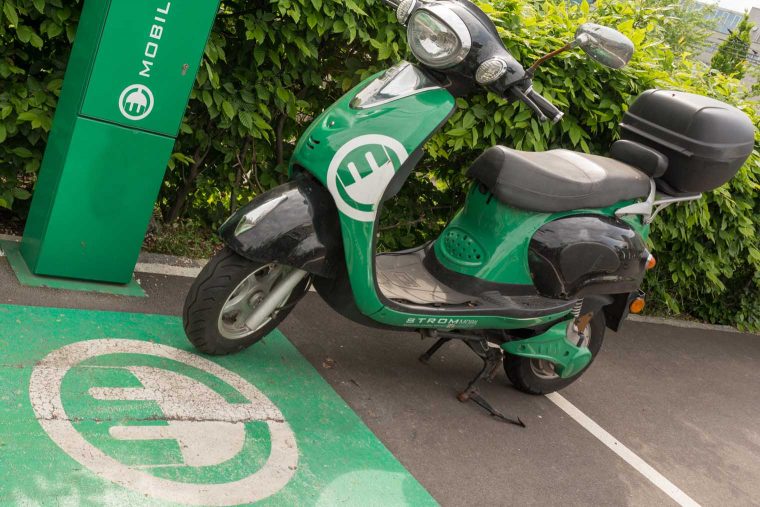New multi-material, multi-process additive manufacturing platform solves issues of performance and cost, using 50% fewer materials to deliver up to twice the energy capacity in the same space or the same energy in half the space
High-volume production of complex functional devices for a host of other applications, also enabled
Sakuu Corporation (previously KeraCel Inc.), the leader in automated multi-process additive manufacturing (AM), has today announced a revolutionary new industrial-grade 3D printer for e-mobility batteries. The breakthrough technology will unlock the mainstream adoption of EV and e-mobility vehicles by solving the previous issues of cost, performance, sustainability, and range. Offering an industrial scale ‘local’ battery production capability, the Sakuu technology is likely to significantly expedite the use of EV’s, by providing increased manufacturer and consumer confidence.
Backed by leading Japanese automotive parts supplier to major OEMs, Musashi Seimitsu, Sakuu is set to enable fast and high-volume production of 3D printed solid-state batteries (SSBs) that, compared to lithium-ion batteries, have the same capacity yet are half the size and almost a third lighter. The company’s ‘KeraCel™’- branded SSBs will also use around 30%-50% fewer materials – which can be sourced locally – to achieve the same energy levels as lithium-ion options, significantly reducing production costs. Additionally, Sakuu’s SSBs will offer improved safety and sustainability benefits.
This manufacturing milestone is enabled by the world’s first and only multi-material, multi-process 3D printer – the Sakuu AM Platform – which has been designed and developed entirely by the company. Thanks to its capability to build complex functional devices at industrial rates, Sakuu anticipates the 3D printer’s attributes being easily transferable to a host of different applications in other industry sectors.
“For the e-mobility markets specifically, we believe this to be a landmark achievement, and one that could transform consumer adoption of electric vehicles,” says Robert Bagheri Founder, CEO and chairman, Sakuu Corporation.
“SSBs are a holy grail technology, but they are both very difficult and expensive to make. By harnessing the flexibility and efficiency-enhancing capabilities of our unique and scalable AM process, we’re enabling battery manufacturers and EV companies to overcome these fundamental pain points,” Bagheri adds.
“Furthermore, by adopting it as the technology of choice, these users also benefit from the wider opportunities our AM platform delivers, namely the ability to enjoy on-demand, localised production, which can help drive more efficient manufacturing operations and shorter supply chains,” he continues.
Unique technology, and more efficient process
A fundamental manufacturing breakthrough with the Sakuu’s new solution is its multiple-AM technology. This blends powder bed and jetted material deposition and uses completely different multi-materials in a single layer capability. The process combines ceramic and metal, as well as Sakuu’s proprietary support material, PoraLyte™, which removes part overhang limitations and enables the easier and faster creation of devices with internal channels and cavities.
The result is a solution that eradicates the shortfalls inherent with existing alternatives – typically low energy density SSBs that are unsuitable for high-volume production and characterised by thick, brittle ceramic layers and poor interface. Instead, Sakuu’s AM platform delivers higher energy density SSBs with thin monolithic layers and perfect interface.
Furthermore, with only half the material requirement and a ‘powder to powder process’ that ensures easier recyclability of the ceramics and metals by conventional methods, KeraCel™ SSBs score much higher when it comes to sustainability. There is no requirement to extract graphite and the absence of polymer means no incineration or burial in landfill.
Sakuu will initially focus on the two-, three- and smaller four-wheel electric vehicle market for whom the company’s SSB proposition delivers an obvious and desirable combination of small form factor, low weight and improved capacity benefits. The agility of Sakuu’s AM process also means that customers can easily switch production to different battery types and sizes, as necessary, for example to achieve double the energy in the same space or the same energy in half the space.
Limitless application potential beyond SSBs
Beyond energy storage, Sakuu’s development of true multi-material-in-a-single-layer print capability opens complex end device markets previously closed off to current 3D printing platforms. These include active components like sensors and electric motors for aerospace and automotive; power banks and heatsinks for consumer electronics; PH, temperature and pressure sensors within IoT; and pathogen detectors and microfluidic devices for medical, to name a few.
“As a cheaper, faster, local, customisable and more sustainable method of producing SSBs – which as a product deliver much higher performance attributes than currently available alternatives – the potential of our new platform offers tremendous opportunities to users within energy, as well as a multitude of other markets,” concludes Bagheri.
Sakuu’s Alpha Platform for its initial hardware offering will be available in Q4 2021
www.sakuu.com

 Deutsch (Germany)
Deutsch (Germany)  Polski (PL)
Polski (PL) 










